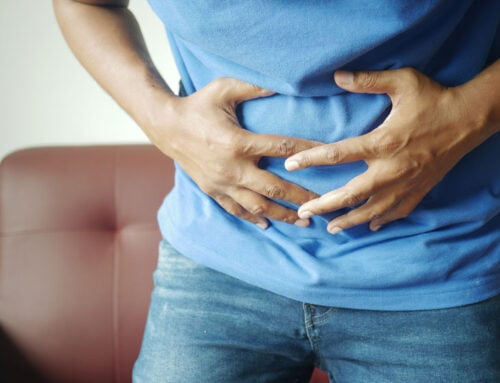How Do I Stop Frequent Bowel Obstructions?
Small bowel obstruction is a digestive issue where part or all of the small intestine is blocked. Making up 80% of all digestive blockages, small bowel obstructions can occur frequently or even back-to-back in certain extreme cases. The obstructions can be influenced or caused by many things, including adhesions, hernia, and inflammatory bowel disorders. By transforming a normally healthy diet into a diet dedicated to digestive health, patients can lower the overall risk of constant small bowel obstructions for years to come.

Step one? Take 5
While balanced food intake is essential for everyone, many experts note that a gut-healthy diet is specifically important for the immuno-compromised and elderly populations. Within vulnerable subsets of the population, any imbalance in nutritional status harms the quality of life, increasing rates of morbidity and mortality. To reset the digestive system after an obstruction, numerous healthcare professionals suggest a period of bowel rest. After the body rests, the healing process begins via liquid and bland foods.
Start slow
After resting the gut sufficiently, some doctors suggest reintroducing food with clear and full liquids, such as gelato or ice cream. Obstructions pressure the digestive system via a buildup of food, gastric acids, gas, and fluids. However, if the liquid is tolerated well, a patient may shift to mushy foods, including porridge, scrambled eggs, and overcooked pasta. As the bowels and digestive system heal, add finely chopped meats and cooked vegetables for optimal nutrients.
Don’t overdo it
The average person can dramatically lower their risk of developing an obstruction by eating enough fiber, keeping active, and staying hydrated. However, patients with damaged bowels may worsen symptoms with an average diet. Since fiber increases bulk within the bowl, eating less fiber can help lower the risk of dense food causing bowel obstruction while improving symptoms such as pain, abdominal cramping, gas, or feelings of excessive fullness.
Limiting blockages
While small bowel obstructions are common, shifting to a specific diet can help limit symptoms and overall frequency. By giving the body a rest period, patients can slowly reintroduce food to determine dietary triggers for obstructions. Levels of fiber must be closely monitored after digestive episodes. If the stomach or bowels are damaged, fiber can lead to discomfort. With a diet focused on bowel health, patients can enjoy less pain and fewer obstructions.



